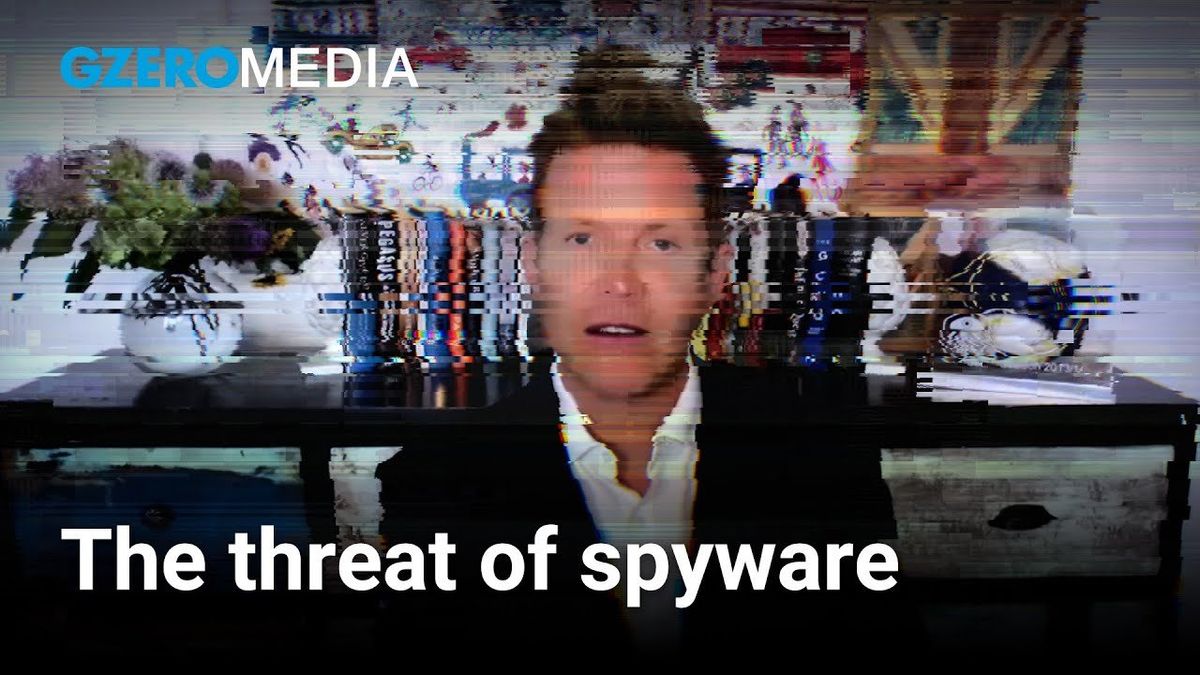Hacked by Pegasus spyware: The human rights lawyer trying to free a princess
In April 2021, David Haigh, a human rights lawyer who'd been fighting to free Dubai’s detained Princess Latifa, received a shocking notification from investigators at The Guardian and Amnesty International: his phone was likely infected with Pegasus spyware. Forensic analysis confirmed that Haigh was the first confirmed British citizen to be hacked by Pegasus, a military-grade spyware created by Israel’s NSO Group that’s licensed to governments all over the world and used for covert surveillance.
Haigh was targeted by a foreign government, likely the ruler of Dubai, but his story isn’t unusual: Over 80% of all internet users are infected with some form of spyware, according to the US National Cyber Security Alliance. GZERO spoke with Haigh, as well as cybersecurity expert Kimberly Ortiz from Microsoft for the first episode of “Caught in the Digital Crosshairs: The Human Impact of Cyberattacks,” a new video series on cybersecurity produced by GZERO in partnership with with Microsoft and the CyberPeace Institute.. Ortiz volunteers for the Insitute and its CyberPeace Builders Program, an organization that provides free cybersecurity assistance, threat detection, and analysis to NGOs and other critical sectors while advocating for safety and security in cyberspace.
- Podcast: Cyber Mercenaries and the digital “wild west" ›
- Hard Numbers: Thais come clean on Pegasus, Salvadoran emergency extended, Tunisian pol questioned, Chinese boycott mortgages ›
- What We're Watching: Dry China, UK inflation forecast, Pegasus spyware shakeup ›
- Digital peace: Trust and security in cyberspace ›
- Fooled by cyber criminals: The humanitarian CEO scammed by hackers - GZERO Media ›
- Attacked by ransomware: The hospital network brought to a standstill by cybercriminals - GZERO Media ›
- Podcast: How cyber diplomacy is protecting the world from online threats - GZERO Media ›
- Podcast: Foreign Influence, Cyberspace, and Geopolitics - GZERO Media ›
- Podcast: Cyber mercenaries and the global surveillance-for-hire market - GZERO Media ›
- The devastating impact of cyberattacks and how to protect against them - GZERO Media ›
- Would the proposed UN Cybercrime Treaty hurt more than it helps? - GZERO Media ›

















